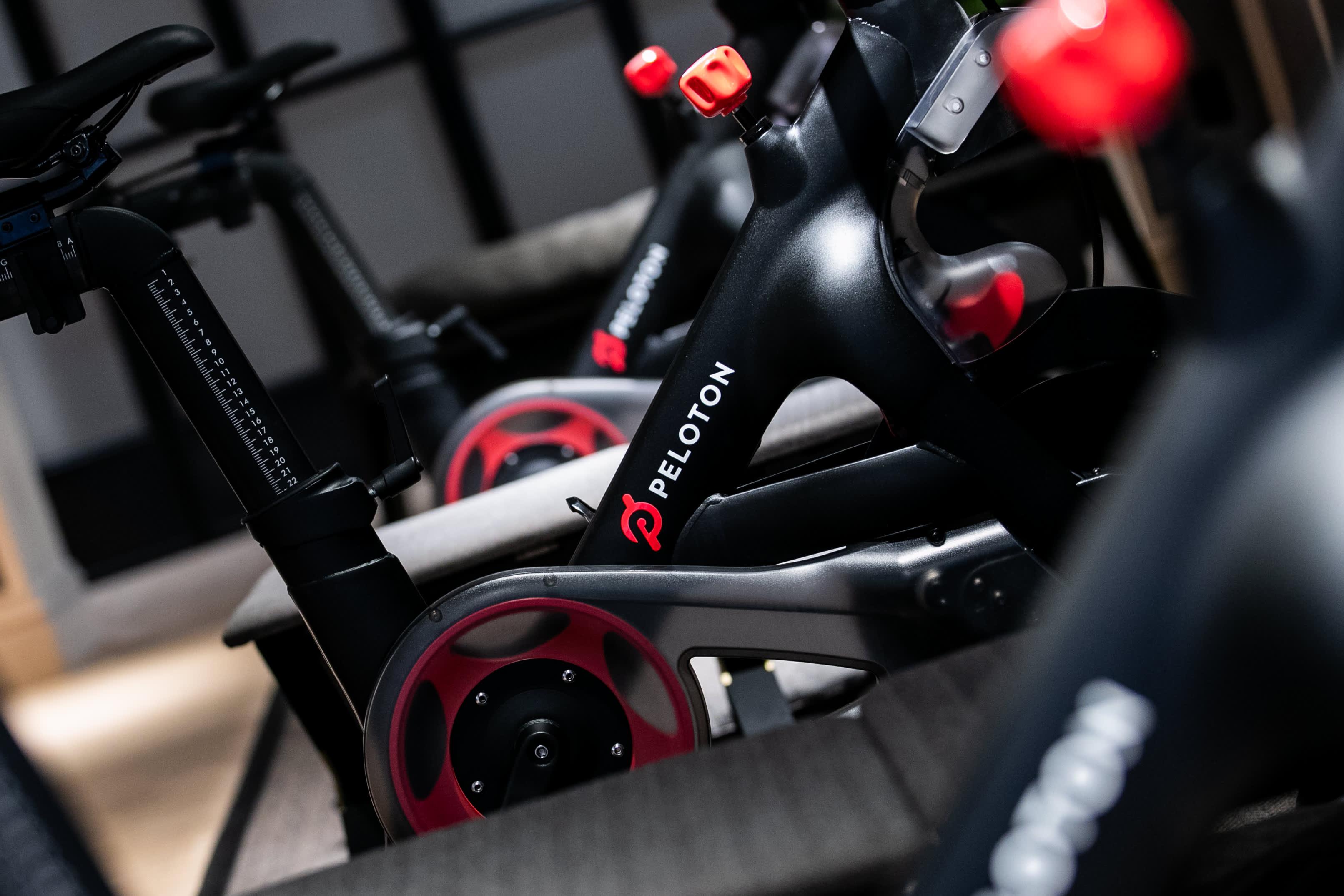Peloton looks to commercial customers like hotel chains for new growth

Peloton Interactive Inc. stationary bicycles sit on display at the company’s showroom on Madison Avenue in New York, U.S., on Wednesday, Dec. 18, 2019.
Jeenah Moon | Bloomberg | Getty Images
Peloton is looking beyond the home for its next stage of growth.
The company announced Monday it has created a single platform from which hospitality industry customers can buy both its connected fitness equipment and Precor products online. After leveraging demand from consumers forced inside by the coronavirus pandemic, Peloton aims to capitalize on a reopening economy.
The move comes after Peloton completed its $420 million acquisition of Precor in April. The deal not only gave Peloton manufacturing capacity in the United States, but also Precor’s slew of treadmills, cycles, ellipticals, rowers and other strength training equipment often found in commercial settings such as heath clubs, universities and hotels.
“This is really a B2B play for us,” said Brad Olson, Peloton’s chief business officer. “We’ve been selling Peloton bikes into hotels and resorts for years. … But this is really the culmination and one of the big elements of the deal rationale of why we purchased Precor.”
Peloton will also work with hotel partners to offer exercise cycles in rooms where requested.
“We know that [having] our bikes in hotels and resorts around the world presents a great opportunity for lead-generation awareness of the Peloton product and content,” Olson said.
Peloton does not break out sales to individuals versus its commercial business. But the company has acknowledged that most of its revenue comes from people who buy fitness machines for their home gyms.
Peloton signaled earlier this year that it wanted to grow its membership base through commercial partners as more people started to leave the house during the pandemic. Peloton launched a corporate wellness program, which gives perks to businesses that partner with the company and choose to outfit their office gyms with Peloton equipment.
Peloton also recently lowered the price of its exercise cycle in a bid to reach new users. The company has hinted that it is working on additional fitness products that will debut in the future.
The move to boost its commercial business comes after the company reported a wider-than-expected loss in its fiscal fourth quarter. Costs associated with a treadmill recall ate into sales. As it picks back up investments in marketing, Peloton said it doesn’t expect to return to profitability until fiscal 2023.
Peloton shares are down about 32% this year. The company has a market value of about $31 billion.




